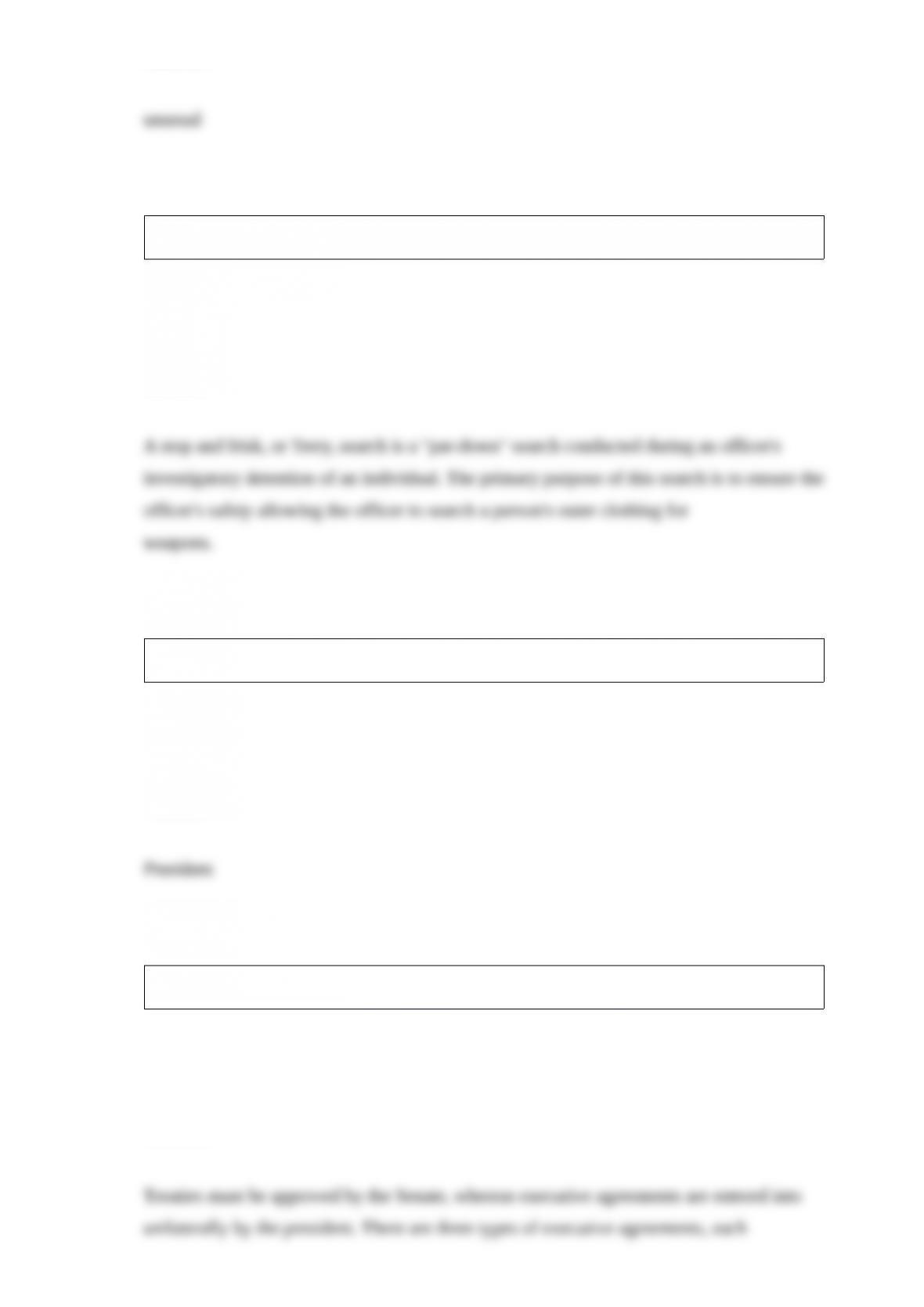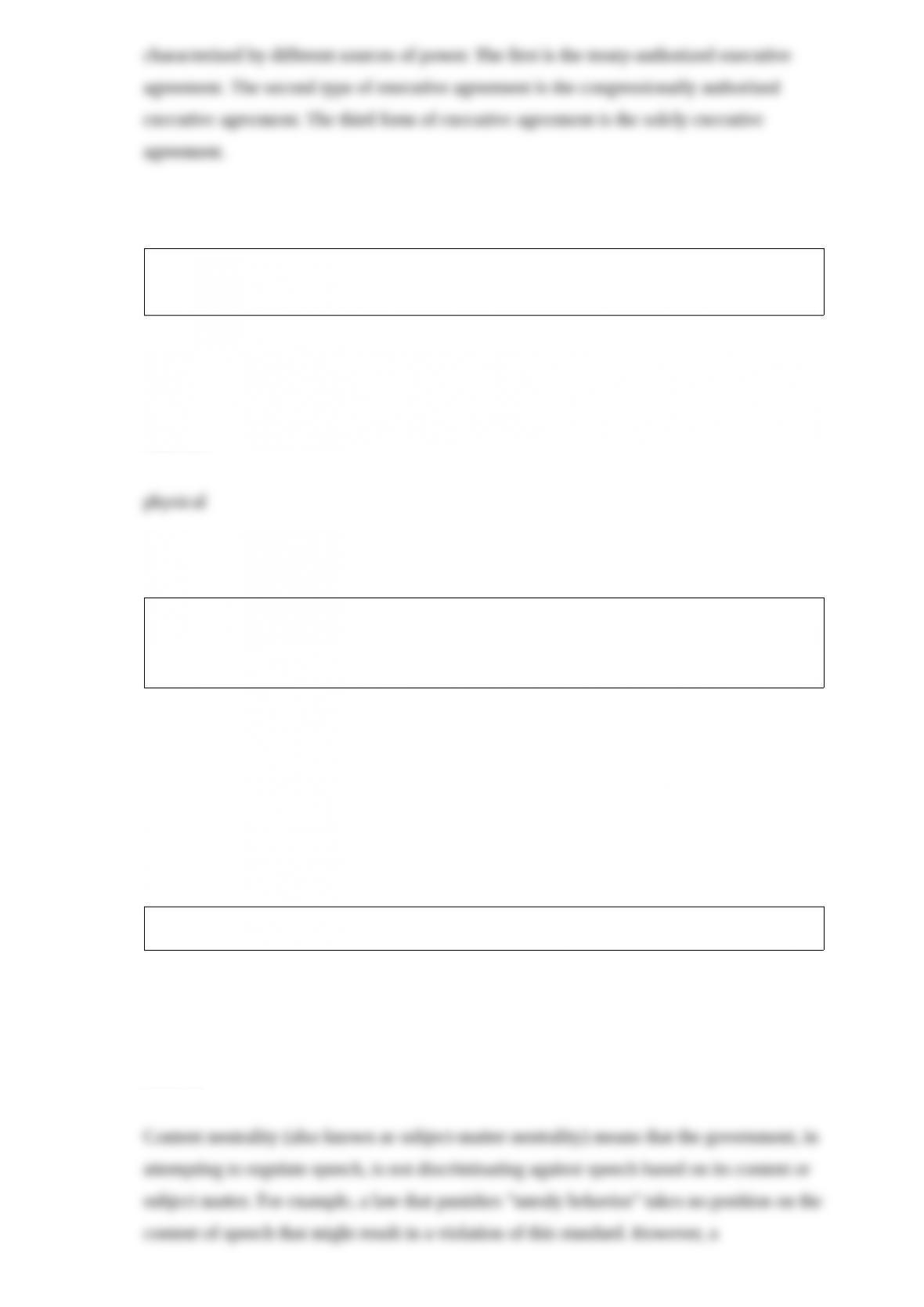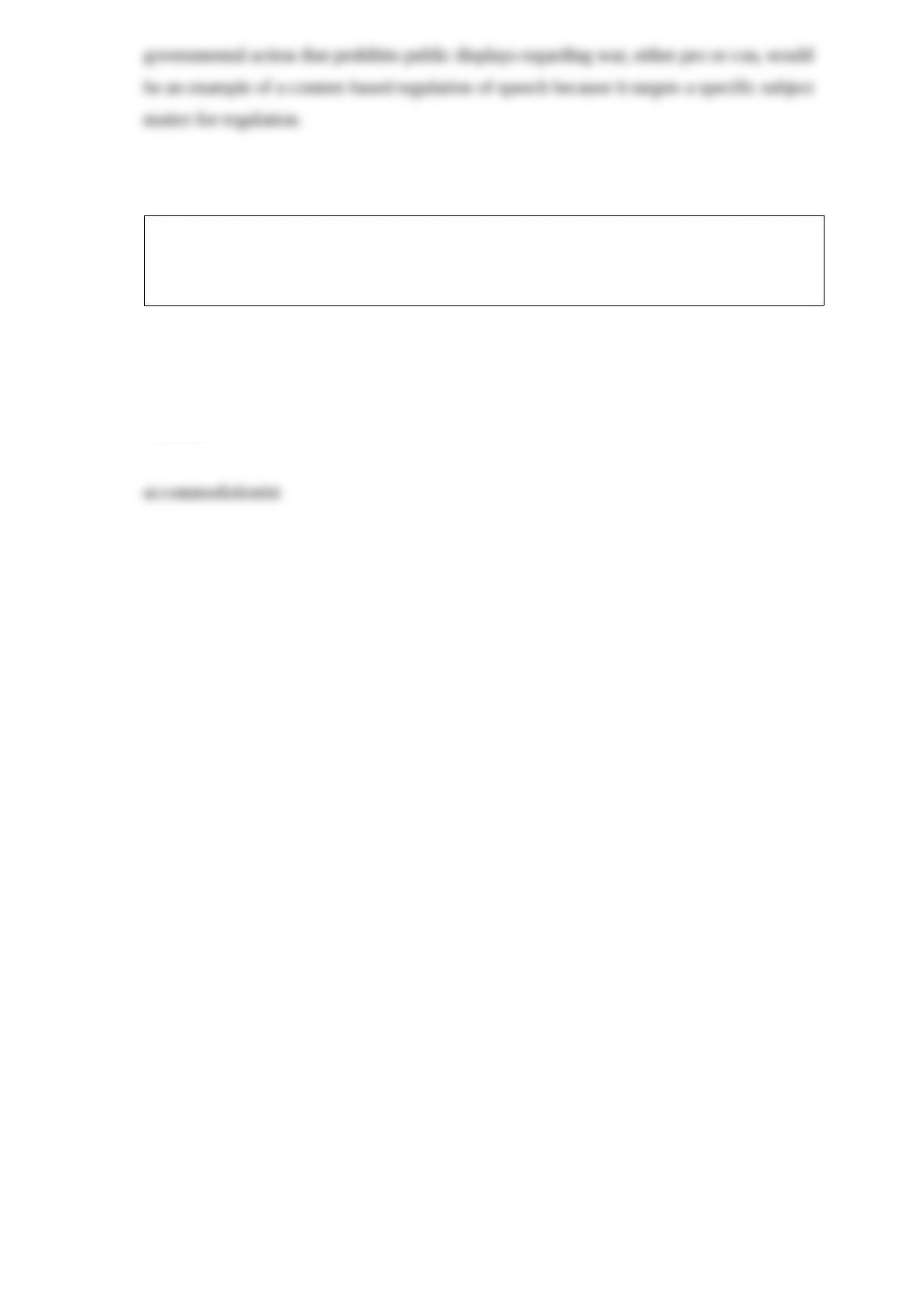Would a professor at a public university be permitted to lead a class in saying a "Hail
Mary" prayer in honor of college basketball team? Why or why not?
A) yes, because the professor is not Congress
B) no, because the first amendment alone would bar such activity
C) yes, because the professor is not a state
D) no, because the fourteenth amendment would preclude such activity
Answer:
If the Court decides to recognize a constitutional right to die (a right not currently
recognized by the Court and not explicitly in the Bill of Rights) and require the states to
recognize this right, what doctrine of incorporation would this reflect?
A) total incorporation doctrine
B) select incorporation doctrine
C) selective incorporation
D) fundamental fairness/implicit in concept of ordered liberty
Answer:
Which of the following best describes the impeachment process?



























































